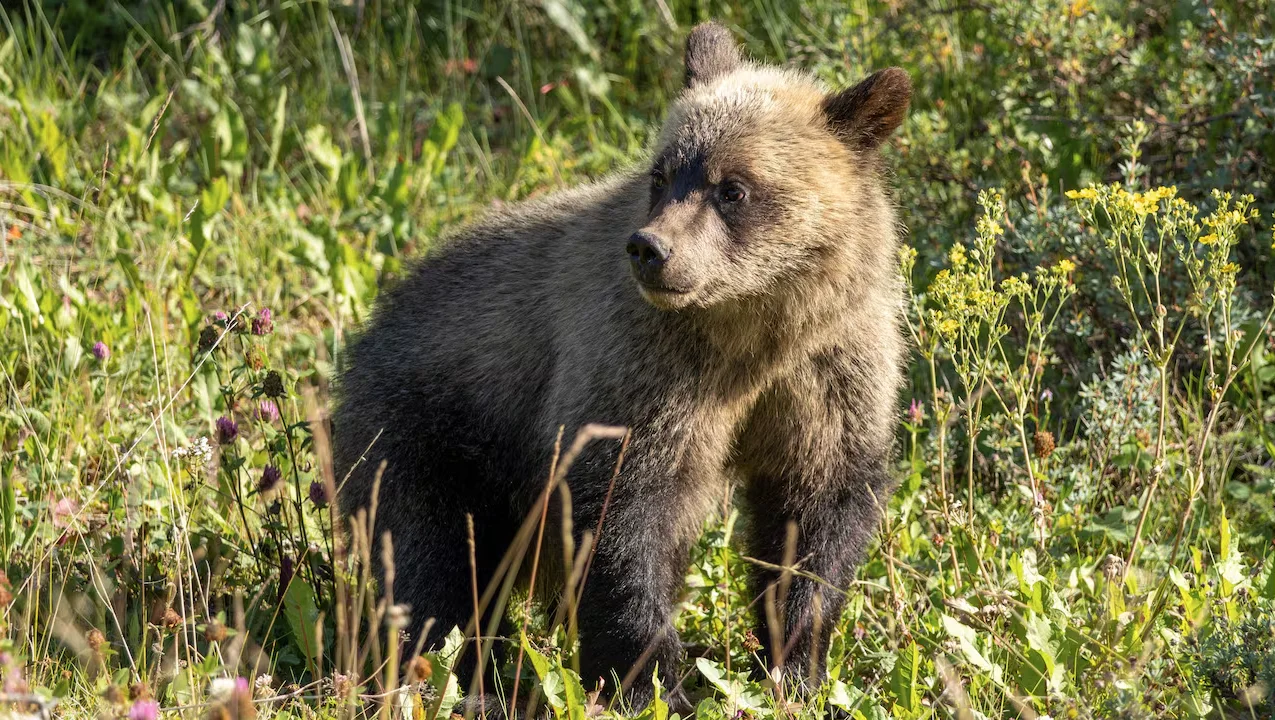
3 grizzly cubs found near attack site to hibernate in wild, Alberta says
Three grizzly bear cubs have been found near the site of a mauling that left a hunter injured and the attacking grizzly dead south of Cochrane Thursday.
"The cubs appear to be in very good shape, and of good size and weight, and based on their observed movements, they likely have a den nearby," a provincial spokesperson said in a statement.
The province had initially said one bear, age unknown, was observed fleeing the scene after the attack, while the attacking grizzly, confirmed to be a sow, was shot and killed by the victim's hunting partner.
Alberta Fish and Wildlife Enforcement Services "consulted biologists and other wildlife specialists at Forestry and Parks and Environment and Protected Areas, and determined the best course of action was to not to interfere with the cubs and allow them to hibernate naturally."
LOOK: Iceland just lost its mosquito-free status. Here's why
The statement did not confirm the age of the cubs, or whether the sow that attacked the hunter was their mother.
"This is the time of year they would normally start hibernating, so they will likely be denning for the winter soon, and there will be abundant food sources for them when they emerge in the spring," the province said.

A file photo of two grizzly bear cubs following their mother across Highway 40 in Kananaskis Country. Cubs often stay with their mother until they're up to three years old, said Canadian Bear Safety Authority founder John Clarke. (Amir Said/CBC)
Will cubs survive?
Retired Alberta Fish and Wildlife officer John Clarke said not knowing the age of the cubs makes it more challenging to gauge their odds of surviving on their own.
"They're just gonna be roaming around, trying to find the den site, where is the food, where is the water, they have to avoid bigger predators, big males, and things like that," he said.
Grizzly bears often stay with their mother until they're up to three years old, Clarke said. Fish and Wildlife's assessment that the cubs would be able to survive hibernation is encouraging, but there are many questions to consider, he said.
"How smart are they? What did they learn from mom? Are they fat enough now even to make it through the winter?"
According to the province's grizzly bear response guide, the available options for orphaned cubs are retaining at a zoo, taking no action, or euthanasia. Relocation in the wild is not an option for bears under a year old.
LOOK ALSO: Bear-dar: New line of defence for humans and polar bears in the North
Under the provincial Wildlife Act, orphaned grizzly bears cannot be rehabilitated and released back into the wild, unlike black bears.
Clarke said Fish and Wildlife is likely to get calls from people concerned about the fact that the grizzly bears have been left in the area.
"Especially after a mauling, you hear people talk about, 'well now, the cubs have a taste of blood and they're going to be like that,' and there's not any data or any science to say that," he said.

Signage west of Calgary indicating an area has been closed to the public due to "dangerous grizzly bear" presence. The sign was put up following the mauling of a hunter by a grizzly bear on Oct. 30. (Submitted by Mike Reece)
The province has not provided a precise location for the attack, only saying that it happened south of Cochrane.
DON'T MISS: What's cooking? Three invasive species you can eat
Alberta Fish and Wildlife put up "dangerous grizzly bear" signage in an area approximately 40 kilometres west of Calgary following the attack.
STARS air ambulance told CBC News the victim was airlifted from the Springbank area, west of Calgary. As of Friday, that man is in non-life-threatening condition, according to EMS.
This article, originally published by CBC News on Nov. 02, 2025, was written by Amir Said.